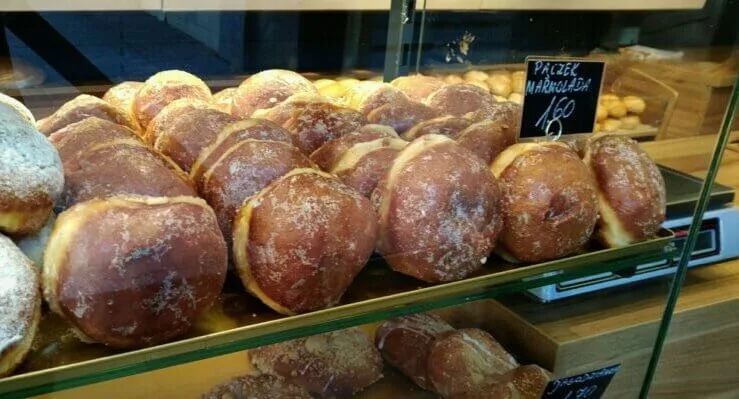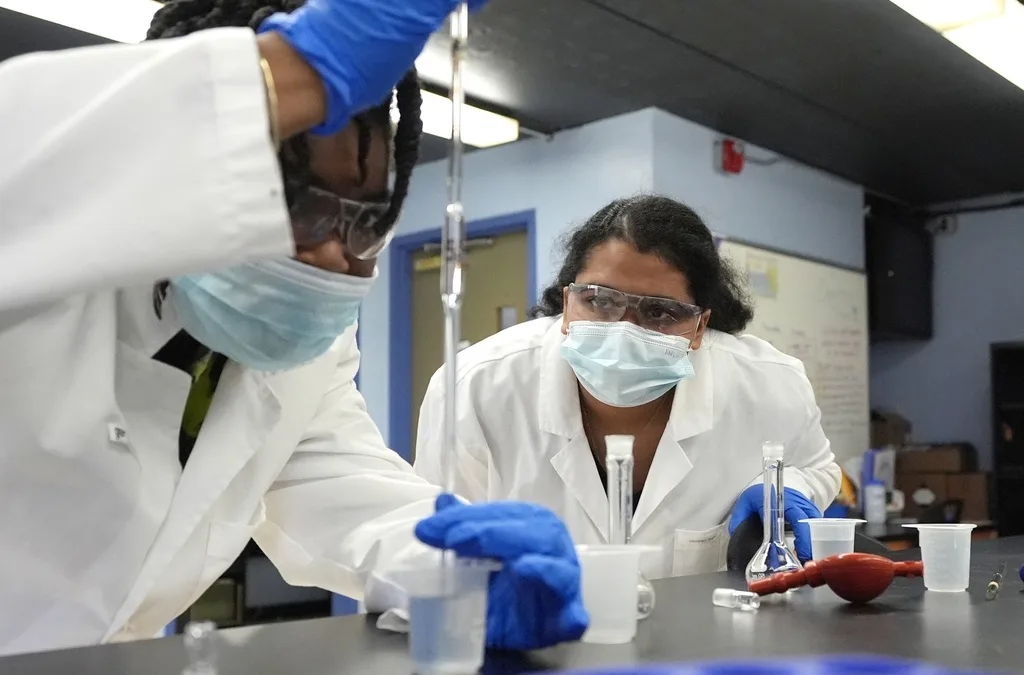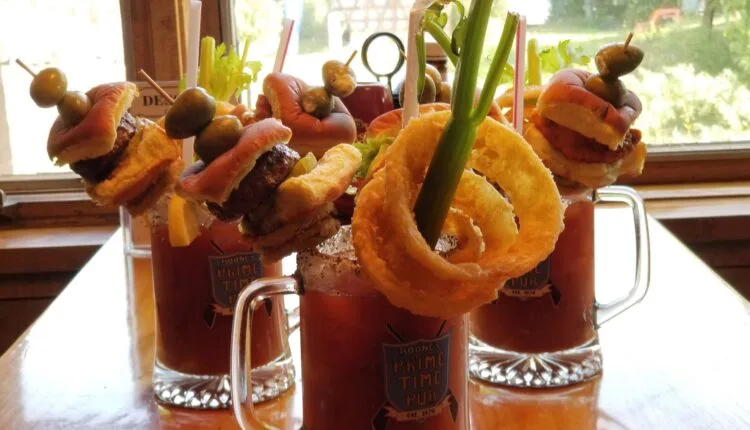
Detroit’s Polish suburb of Hamtramck is known for its tasty paczki. (MichaIPL via Wikimedia Commons)
As Michiganders, we put onions on hot dogs, olives on hamburgers, and snack on Polish donuts in February. But have you ever wondered why? In our Michigan Moments: Food series, we’re checking out the history behind iconic Michigan foods and beverages.
MICHIGAN—Though it may come as a surprise to you, food from the Midwest might be considered unusual by our coastal neighbors. Midwestern cooking often combines culinary traditions from our families’ immigrant backgrounds, locally grown and produced ingredients, and the foods of Indigenous tribes.
And in Michigan especially, our home cookin’ includes provisions that were concocted, bottled, and packaged by mitten-state entrepreneurs. If you’re curious about the history of some of your favorite foods and beverages, read on to discover how Michigan history creates Michigan culture.
Paczki
Near the end of February, you can walk into any Kroger or Meijer and find a delightful display of paczki (pronounced POWNCH-key)—filled Polish pastries that resemble jelly donuts. Paczki are made from a brioche-like dough and filled with fruit preserves like raspberry, lemon, strawberry, apple, and custard.
But why do we take one day out of the year to chow down on pastries with a difficult pronunciation?
Michigan is big on paczki because we have a thriving population of Polish immigrants who migrated here near the turn of the 20th Century. Although you can find these pastries on Fat Tuesday from Maryland to Illinois and beyond, Detroit’s Polish suburb of Hamtramck may put out more than the rest.
Many people in Poland observe the Catholic Lent, which is traditionally 40 days of fasting and avoiding rich foods such as sweets and butters. Ash Wednesday is the first day of Lent, and the day before that is Fat Tuesday—when Polish bakers try to sell the last of their rich foods that cannot be eaten over Lent.
Leading up to Fat Tuesday, Polish bakeries like those in Hamtramck became famous for selling treats like paczki. The tradition only expanded when more Polish immigrants came to Detroit following World War II.
By the 1980s, Kroger, Meijer and other grocery stores started lining the shelves with paczki, officially making Fat Tuesday a holiday that everyone—Polish or not—could enjoy. Those are tasty, but if you want some truly authentic paczki from the metro Detroit area, be sure to check out Eater Detroit’s paczki map.
Politics

Biden administration bans noncompete clauses for workers
The Federal Trade Commission (FTC) voted on Tuesday to ban noncompete agreements—those pesky clauses that employers often force their workers to...

Remember Betsy? Michigan education leaders blast Trump for ‘abandoning’ public schools
Michigan lawmakers and teachers are rallying behind President Joe Biden—and reflecting on a rough period for public schools after Trump put Betsy...

Michigan Dems announce bills banning PFAS in household products
BY SUSAN J. DEMAS, MICHIGAN ADVANCE MICHIGAN—Two Democratic House members on Monday announced they are sponsoring legislation that would eventually...
Local News

Children of Flint water crisis make change as young environmental and health activists
FLINT—Their childhood memories are still vivid: warnings against drinking or cooking with tap water, enduring long lines for cases of water, washing...

These students are protecting the ‘coral reefs’ of Michigan—and you can too
Vernal pools are a critical part of Michigan’s natural ecosystem—but they’re not protected by state regulations. Here’s how Michiganders are...





